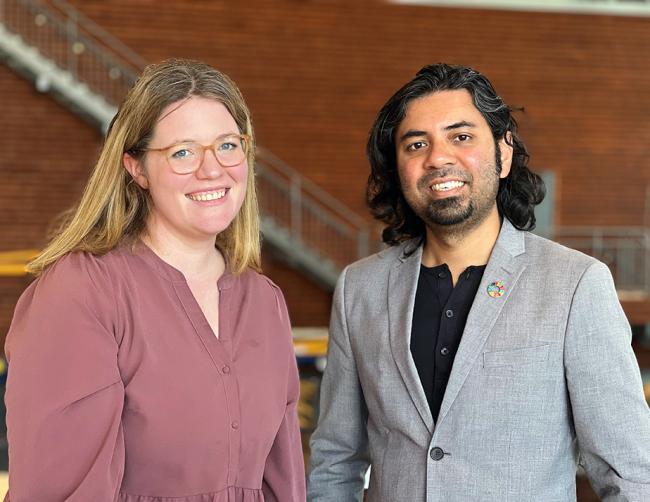Seed funding through MIRAI and STINT enhances international research collaboration
2025-05-09Two projects led by researchers at Karlstad University have through MIRAI been granted seed funding, which will provide our researchers with opportunities for international collaboration and increased mobility.
MIRAI, with support from STINT, announced funding to support research collaborations between the member universities in Japan and Sweden. The aim is to develop new and existing collaborations through innovative projects. Out of 43 applications, eleven projects were selected for funding, two of which are led by researchers at Karlstad University.
– In our project, we will work with Risklab here at Karlstad University, says Caroline Bhowmik, postdoctoral researcher. Children are exposed to things that can cause worry at an increasingly younger age, including media coverage of issues like the climate crisis, etcetera. We want to look at how the curriculum and educational interventions can be used to address children's worries and feelings about an uncertain future.
Games as a tool for managing climate anxiety
The project aims to assess the feasibility and performance of serious games and game-like experiences to enhance older and young people’s ability to adapt to inevitable climate change risks, as well as reducing and alleviating climate anxiety. The project also includes Avit Bhowmik, senior lecturer in risk and environmental studies at Karlstad University, as well as researchers at Jönköping University and two Japanese universities. The project addresses the MIRAI theme “Climate adaption, disaster and risk management and prevention” and is in line with several of the Sustainable Development Goals.
Environmentally friendly energy storage
– The project I will be leading focuses on energy and energy storage, says Cleber Marchori, senior lecturer in physics. The project gathers researchers from Sweden and Japan who will study the application of organic and inorganic materials in combination. Sustainability aspects are central to the project, with a focus on circular materials and how to process them to reduce the carbon footprint. This will create new networks for young researchers, in our case five researchers from Sweden and Japan. The initiative from the MIRAI collaboration enables us to look forward, and we are now planning to seek additional funding to provide more doctoral students or postdocoral fellows with opportunities for international networking.
– It is very positive that we can now offer our researchers opportunities to collaborate with Japanese researchers and contribute to the four selected Global Challenges defined within MIRAI 3.0. In addition to the granted seed funding projects, we now also have an ongoing call for long-term mobility for early career researchers through MIRAI-STINT, says Jorge Solis, docent in electrical engineering and project leader for MIRAI at Karlstad University.
STINT, the Swedish Foundation for International Cooperation in Research and Higher Education, funds the MIRAI 3.0 collaboration with ten million SEK, where researchers from 17 universities in Sweden and Japan will work in interdisciplinary teams to contribute to the four selected Global Challenges defined within MIRAI 3.0. MIRAI includes ten universities in Sweden and seven in Japan. Umeå University acts as the Swedish coordinating university for MIRAI 3.0, which runs until 2026. Each country has its own budget to finance joint activities within the project. The budget is based on co-financing from the participating universities for joint project coordination.
Link to the MIRAI website
More information about Karlstad University’s involvement in MIRAI


